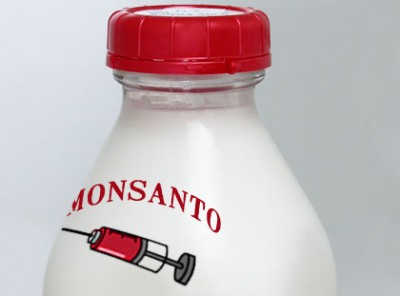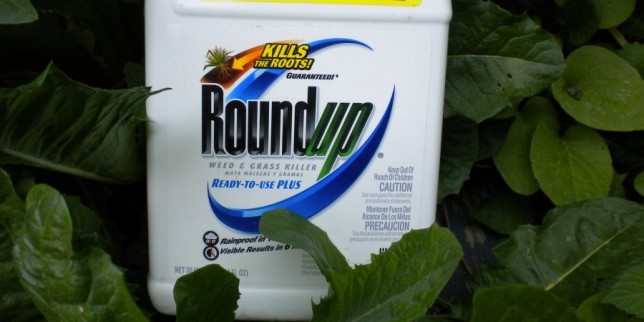“Diarrhea, Skin Rashes, Depression, Thyroid Disease, Kidney Failure, Cancer”: Monsanto Roundup Linked to Global Boom in Celiac Disease and Gluten Intolerance

Celiac disease, gluten intolerance and irritable bowel syndrome are on the rise worldwide, and that rise has taken place in parallel with the increased use of glyphosate (Roundup) herbicide, shows a new US peer-reviewed paper from Dr. Anthony Samsel and Dr. Stephanie Seneff.
The review has been published in the Journal of Interdisciplinary Toxicology.
“Celiac disease, and, more generally, gluten intolerance, is a growing problem worldwide, but especially in North America and Europe, where an estimated 5% of the population now suffers from it. Symptoms include nausea, diarrhea, skin rashes, macrocytic anemia and depression. It is a multifactorial disease associated with numerous nutritional deficiencies as well as reproductive issues and increased risk to thyroid disease, kidney failure and cancer.
Here, we propose that glyphosate, the active ingredient in the herbicide, Roundup®, is the most important causal factor in this epidemic.” [see full abstract below and link to report]

Roundup is linked in Samsel and Seneff’s new review paper to a major increase in celiac disease. A recent estimate suggests that one in twenty people in North America and Western Europe now suffer from this gluten intolerant disease.
“All of the known biological effects of glyphosate – cytochrome P450 inhibition, disruption of synthesis of aromatic amino acids, chelation of transition metals, and antibacterial action – contribute to the pathology of celiac disease,” Samsel and Seneff’s paper states.
Monsanto’s Glyphosate (Roundup) has become the number one selling herbicide worldwide, due to the increase in the planting of Roundup Ready GM Crops.
Celiac disease is a digestive disease that damages the small intestine and interferes with absorption of nutrients from food. People who have celiac disease cannot tolerate gluten, a protein in wheat, rye, and barley. Gluten is found mainly in foods but may also be found in everyday products such as medicines, vitamins, and lip balms.
When people with celiac disease eat foods or use products containing gluten, their immune system responds by damaging or destroying villi—the tiny, fingerlike protrusions lining the small intestine. Villi normally allow nutrients from food to be absorbed through the walls of the small intestine into the bloodstream. Without healthy villi, a person becomes malnourished, no matter how much food one eats.
Journal of Interdisciplinary Toxicology Review Abstract:
Authors: Dr. Anthony Samsel and Dr. Stephanie Seneff
Celiac disease, and, more generally, gluten intolerance, is a growing problem worldwide, but especially in North America and Europe, where an estimated 5% of the population now suffers from it. Symptoms include nausea, diarrhea, skin rashes, macrocytic anemia and depression. It is a multifactorial disease associated with numerous nutritional deficiencies as well as reproductive issues and increased risk to thyroid disease, kidney failure and cancer. Here, we propose that glyphosate, the active ingredient in the herbicide, Roundup®, is the most important causal factor in this epidemic. Fish exposed to glyphosate develop digestive problems that are reminiscent of celiac disease. Celiac disease is associated with imbalances in gut bacteria that can be fully explained by the known effects of glyphosate on gut bacteria.
Characteristics of celiac disease point to impairment in many cytochrome P450 enzymes, which are involved with detoxifying environmental toxins, activating vitamin D3, catabolizing vitamin A, and maintaining bile acid production and sulfate supplies to the gut. Glyphosate is known to inhibit cytochrome P450 enzymes.
Deficiencies in iron, cobalt, molybdenum, copper and other rare metals associated with celiac disease can be attributed to glyphosate’s strong ability to chelate these elements. Deficiencies in tryptophan, tyrosine, methionine and selenomethionine associated with celiac disease match glyphosate’s known depletion of these amino acids. Celiac disease patients have an increased risk to non-Hodgkin’s lymphoma, which has also been implicated in glyphosate exposure. Reproductive issues associated with celiac disease, such as infertility, miscarriages, and birth defects, can also be explained by glyphosate. Glyphosate residues in wheat and other crops are likely increasing recently due to the growing practice of crop desiccation just prior to the harvest. We argue that the practice of “ripening” sugar cane with glyphosate may explain the recent surge in kidney failure among agricultural workers in Central America. We conclude with a plea to governments to reconsider policies regarding the safety of glyphosate residues in foods. [emphasis added]
Copyright: Originally published by Sustainable Pulse 2014

